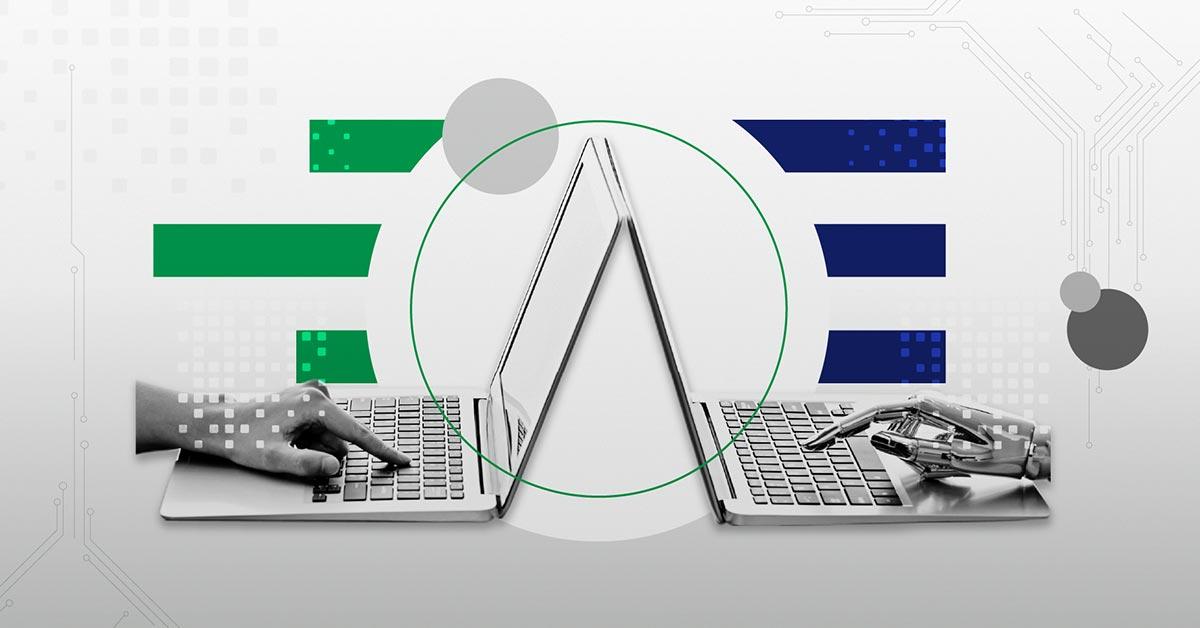"Ema, a 'Universal AI employee,' emerges from stealth with $25M."
"Meet Ema, a universal AI employee that boosts productivity across every role in your organization. She is simple to use, trusted, and accurate."
[Insert joke here about how saying things like that won't make people worry about their jobs.]
"Ema's the missing operating system that makes Generative AI work at an enterprise level. Using proprietary Generative Workflow Engine, Ema automates complex workflows with a simple conversation. She is trusted, compliant and keeps your data safe. EmaFusion model combines the outputs from the best models (public large language models and custom private models) to amplify productivity with unrivaled accuracy. See how Ema can transform your business today."
"They say Ema (the company) has already quietly amassed customers while still in stealth, including Envoy Global, TrueLayer, and Moneyview."
"Ema's Personas operate on our patent-pending Generative Workflow Engine (GWE), which goes beyond simple language prediction to dynamically map out workflows with a simple conversation. Our platform offers Standard Personas for common enterprise roles such as Customer Service Specialists (CX), Employee Assistant (EX), Data Analyst, Sales Assistant etc. and allows for the rapid creation of Specialized Personas tailored to rapidly automate unique workflows. No more waiting for months to build Gen AI apps that work!"
"To address accuracy issues and computational costs inherent in current Gen AI applications, Ema leverages our proprietary "fusion of experts" model, EmaFusion, that exceeds 2 Trillion parameters. EmaFusion intelligently combines many large language models (over 30 today and that number keeps growing), such as Claude, Gemini, Mistral, Llama2, GPT4, GPT3.5, and Ema's own custom models. Furthermore, EmaFusion supports integration of customer developed private models, maximizing accuracy at the most optimal cost for every task."
Oh, and "Ema" stands for "enterprise machine assistant".
Ema "taps into more than 30 large language models."
"As for what Ema can do, these businesses are using it in applications that range from customer service -- including offering technical support to users as well as tracking and other functions -- through to internal productivity applications for employees. Ema's two products -- Generative Workflow Engine (GWE) and EmaFusion -- are designed to "emulate human responses" but also evolve with more usage with feedback."
They also say, "Pre-integrated with hundreds of apps, Ema is easy to configure and deploy."
What are those integrations? They said some of those integrations are: Box, Dropbox, Google Drive, OneDrive, SharePoint, Clear Books, FreeAgent, FreshBooks, Microsoft Dynamics 365, Moneybird, NetSuite, QuickBooks Online, Sage Business Cloud, Sage Intacct, Wave Financial, Workday, Xero, Zoho Books, Aha!, Asana, Azure DevOps, Basecamp, Bitbucket, ClickUp, Dixa, Freshdesk, Freshservice, Front, GitHub Issues, GitLab, Gladly, Gorgias, Height, Help Scout, Hive, Hubspot Ticketing, Intercom, Ironclad, Jira, Jira Service Management, Kustomer, Linear, Pivotal Tracker, Rally, Re:amaze, Salesforce Service Cloud, ServiceNow, Shortcut, SpotDraft, Teamwork, Trello, Wrike, Zendesk, Zoho BugTracker, Zoho Desk, Accelo, ActiveCampaign, Affinity, Capsule, Close, Copper, HubSpot, Insightly, Keap, Microsoft Dynamics 365 Sales, Nutshell, Pipedrive, Pipeliner, Salesflare, Salesforce, SugarCRM, Teamleader, Teamwork CRM, Vtiger, Zendesk Sell, Zoho CRM, ApplicantStack, Ashby, BambooHR, Breezy, Bullhorn, CATS, ClayHR, Clockwork, Comeet, Cornerstone TalentLink, EngageATS, Eploy, Fountain, Freshteam, Greenhouse, Greenhouse - Job Boards API, Harbour ATS, Homerun, HR Cloud, iCIMS, Infinite BrassRing, JazzHR, JobAdder, JobScore, Jobsoid, Jobvite, Lano, Lever, Oracle Fusion - Recruiting Cloud, Oracle Taleo, Personio Recruiting, Polymer, Recruitee, Recruiterflow, Recruitive, Sage HR, SAP SuccessFactors, SmartRecruiters, TalentLyft, TalentReef, Teamtailor, UKG Pro Recruiting, Workable, Workday, Zoho Recruit, ActiveCampaign, Customer.io, getResponse, Hubspot Marketing Hub, Keap, Klaviyo, Mailchimp, MessageBird, Podium, SendGrid, Sendinblue, 7Shifts, ADP Workforce Now, AlexisHR, Altera Payroll, Azure Active Directory, BambooHR, Breathe, Ceridian Dayforce, Charlie, ChartHop, ClayHR, Deel, Factorial, Freshteam, Google Workspace, Gusto, Hibob, HRAlliance, HR Cloud, HR Partner, Humaans, Insperity Premier, IntelliHR, JumpCloud, Justworks, Keka, Lano, Lucca, Namely, Nmbrs, Officient, Okta, OneLogin, OysterHR, PayCaptain, Paychex, Paycor, PayFit, Paylocity, PeopleHR, Personio, PingOne, Proliant, Rippling, Sage HR, Sapling, SAP SuccessFactors, Sesame, Square Payroll, TriNet, UKG Dimensions, UKG Pro, UKG Ready, Workday, and Zenefits.
Ema, a 'Universal AI employee,' emerges from stealth with $25M
#solidstatelife #ai #genai #llms #aiagents #technologicalunemployment







/static.texastribune.org/media/files/845135797d4460298c4c03f52b0fc261/0913%20Odessa%20School%20Tours%20EH%2021.jpg)


